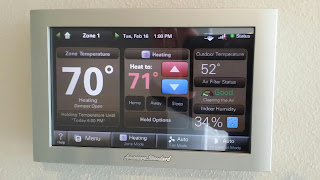Your AC unit works tirelessly all summer to ensure a comfortable indoor environment. If you are a homeowner, there are a few things you need to know about how an air conditioning system works. How long have you had your AC unit in your home? If it is 10 or 15 years old, it might be time to start thinking about replacing your AC system.
Here are a few things you should consider first:
- Should you replace all parts of an HVAC System? Yes. A mismatched system may not deliver the energy efficiency or performance you need. Therefore it is best to replace a heating system at the same time you replace an AC unit.
- Should you invest in programmable thermostats? Programmable thermostats allow you to program your settings to automatically adjust heating and cooling levels.
- What is SEER rating? Seasonal Energy Efficiency Ratio is the measurement of system efficiency. The U.S. Department of Energy requires HVAC systems have a minimum rating of 13. However, the higher the SEER rating the more money you will save on operational costs.
- Do you care about comfort, energy costs or the environment? Today’s energy efficient units combine superior comfort for your home while saving money.
- Should you repair or replace your AC unit? If your system is over 10 years old, there’s a chance that it is not energy efficient. An energy efficient unit will help you save anywhere upwards to 30% on your energy bill.
- Who should you call? Professional HVAC technicians have experience doing the job right the first time. Before setting up an appointment, make sure they are certified, licensed and insured.

A new air conditioning system can save you time and money by working more efficiently. If you have any questions about replacing your current air conditioning unit or would like to speak with a professional about your options, contact Blue Flame Heating & Air Conditioning. Our professionals have years of experience in both residential and commercial air conditioning including installation, replacement, repair and maintenance.
To schedule your free estimate, give us a call at 509-536-0186.






